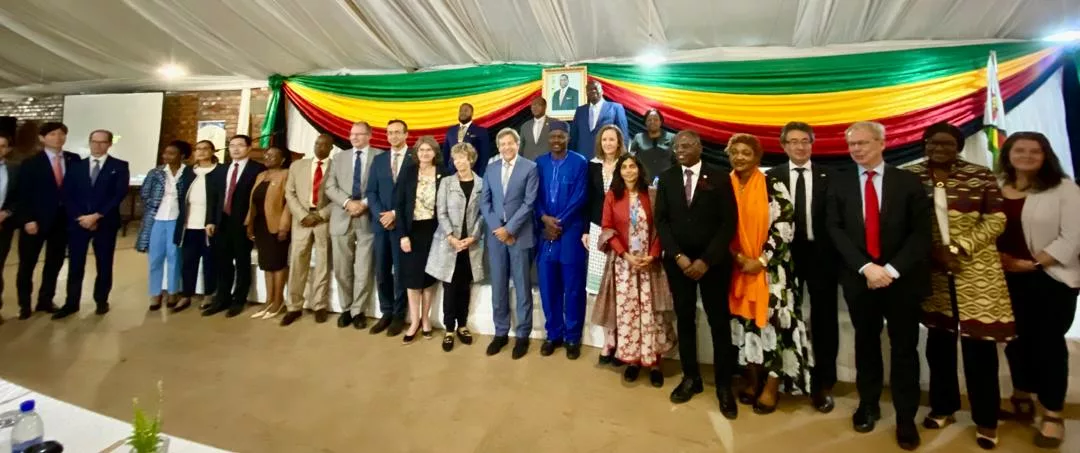|
Getting your Trinity Audio player ready...
|
Writes Sirak Gebrehiwot
16 October 2024, Harare – The Development Cooperation Policy Dialogue convened today at Manna Safari Lodge, uniting key government officials, Ambassadors, Heads of UN Agencies, International Development Cooperation leaders, and stakeholders to analyze Zimbabwe’s economic landscape and prepare for the upcoming 2025 national budget.
The Minister of Finance, Economic Development, and Investment Promotion, Honourable Professor Mthuli Ncube, emphasized the meeting’s importance in light of nationwide budget consultations. He showcased the Zimbabwean economy’s resilience, highlighting that GDP growth rates have exceeded an average of 5% over the past three years. However, external shocks, including an El Niño-induced drought, declining commodity prices, and geopolitical tensions, are expected to cause a slowdown to 2% in 2024.
The Minister acknowledged substantial changes following the introduction of the new structured currency, the Zimbabwe Gold (ZiG), which has maintained stability post-implementation. Monthly inflation has remained largely controlled, although recent pressures have resulted in adjustments to the ZiG’s valuation by the Reserve Bank of Zimbabwe.
UN Resident and Humanitarian Coordinator ad interim, Dr. Ayodele Odusola, also UNDP Representative, underscored the need for innovative financing aligned with the Addis Ababa Action Agenda. He recommended adopting the National Integrated Financing Framework to bolster Zimbabwe’s development goals as the deadline for the 2030 Agenda for Sustainable Development approaches. Dr. Odusola stressed comprehensive financial reforms and climate financing, along with strengthened coordination of stakeholders for development results as essential for the future of Zimbabwe’s economic development.
The dialogue also addressed the Structured Dialogue Platform for arrears clearance and debt resolution initiated in December 2022, outlining collaborative achievements with international creditors and institutions under a transparent framework designed to support sustainable economic reforms.
Deputy Minister of Finance, Honourable D. K. Mnangagwa, highlighted the significance of international cooperation and the vital role of development partners in combating climate change, which has severely impacted Zimbabwe. He advocated for inclusive socio-economic dialogues that incorporate diverse stakeholders to inform policy formulation and implementation strategies.
Permanent Secretary Mr. George Guvamatanga reaffirmed the government’s commitment to fostering inclusive dialogue with development partners. This sentiment was echoed in Deputy Minister Mnangagwa’s closing remarks, which expressed a commitment to ongoing discussions as a means of realizing Zimbabwe’s aspiration of becoming an upper-middle-income society by 2030.
The discussion concluded with a clear consensus: enhancing development coordination, along with proactive and regular policy dialogue focused on implementation, is crucial for navigating Zimbabwe’s complex economic landscape and establishing a strong foundation for the 2025 national budget, ensuring inclusive progress for all citizens.
Sirak Gebrehiwot is UN Partnerships and Development Finance Advisor at the UN Resident Coordinator’s Office






